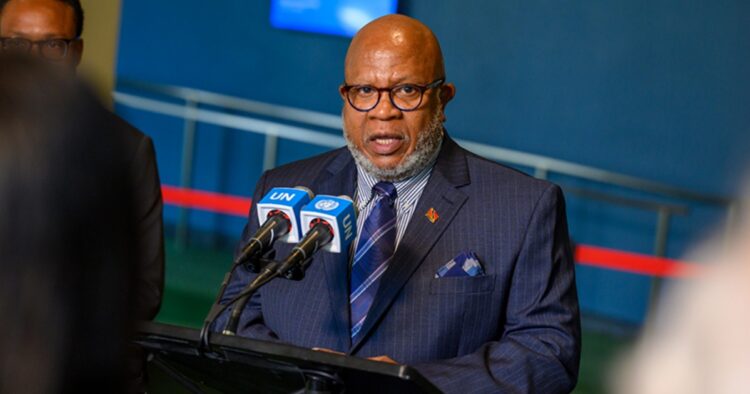In a recent lecture at the Food and Agriculture Organisation (FAO) in Rome, Dennis Francis, President of the 78th session of the UN General Assembly, praised India’s remarkable success in combating poverty through digitalisation. Francis, addressing a global audience, used India as a prime example of how digital tools like smartphones can transform economies and improve lives.
Francis emphasized that India’s use of digital technology has been instrumental in lifting around 800 million people out of poverty in the past five to six years. He explained that the widespread adoption of smartphones has allowed rural farmers in India to engage with banking systems for the first time.
These farmers can now handle transactions, pay bills, and receive payments for their goods directly from their phones, a significant shift from their previous financial practices.
The President noted that India’s progress is evident from the country’s high level of internet access and cell phone usage. However, he pointed out that such advancements are not yet available in many parts of the Global South, where digital inequality remains a major issue.
Francis called for global efforts to address this disparity and ensure more equitable access to digital tools as part of a broader framework for digitalisation.
Historically, India’s digital transformation has been impressive. In 2009, only a small fraction of the population had access to banking services or digital payment methods. Back then, just 17% of adults had bank accounts, 15% used digital payments, and mobile phone penetration was relatively low.
Today, the situation has changed dramatically. With teledensity reaching 93%, over a billion people now possess digital ID documents, more than 80% have bank accounts, and digital payment transactions exceed 600 crore per month.
India’s financial inclusion efforts have played a crucial role in this transformation. Key initiatives include Aadhaar, a biometric system providing unique identities to citizens, and Jan Dhan accounts, which facilitate easy access to banking services. Additionally, social benefit payments are now directly transferred to these accounts, and the BHIM app based on the Unified Payments Interface (UPI) has revolutionized digital transactions.
During the lecture, Francis also discussed the need to update the international financial architecture. He argued that the current systems, which were established 80 years ago, no longer reflect the realities of today’s global economy. The UN has recognized the necessity of reform, as outlined in the ‘Our Common Agenda’ report released by the Secretary-General in September 2021.
This report proposes the establishment of a Global Digital Compact, which will be discussed at the high-level Summit of the Future in September 2024.
Dennis Francis’s remarks underscore the significant role digitalisation can play in reducing poverty and improving financial inclusion. India’s achievements serve as a model for other nations, highlighting the importance of equitable access to technology as a means to foster global development and address digital disparities.

















Comments